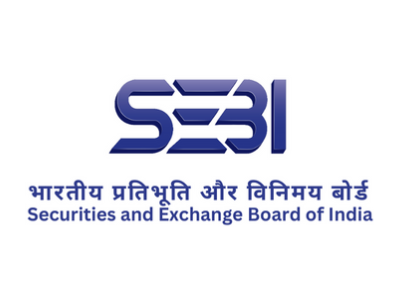Listen to this article
The current regulations dictate that designated AMC employees must invest 20% of their CTC (net of income tax and statutory contributions) in the schemes they manage.
SEBI has proposed in its latest consultation paper that the AMCs should exclude non-cash components from minimum investment calculations if they're under 20% of CTC, with higher investment requirements to offset this. If non-cash components exceed 20%, they must be included.
Here are the proposed changes to the minimum investment amount for employees of AMCs:
|
Slabs based on annual CTC (In INR) |
Minimum percentage required to be invested with inclusion of non-cash component |
Minimum percentage required to be invested with exclusion of non-cash component, if the non-cash component is less than 20 percent of the CTC |
|
Slab 0 (Gross CTC below 25 lakhs) |
Nil |
Nil |
|
Slab 1 (Gross CTC above 25 lakhs but below 50 lakhs) |
10% of gross annual CTC net of income tax and any statutory contributions. |
12.5% of gross annual CTC net of non-cash compensation, income tax and any statutory contributions. |
|
Slab 2 (Gross CTC > 50 lakhs but less than 1 crore) |
14% of gross annual CTC net of income tax and any statutory contributions. |
17.5% of gross annual CTC net of non-cash compensation, income tax and any statutory contributions. |
|
Slab 3 (Gross CTC above 1 crore) |
18% gross annual CTC net of income tax and any statutory contributions. |
22.5% gross annual CTC net of non-cash compensation, income tax and any statutory contributions. |
Also discussed is differentiating the applicability of the skin-in-the-game requirements based on the roles and responsibilities of the designated employees.
For employees not directly involved in investment management functions, such as Chief Risk Officer (CRO), Chief Information Security Officer (CISO), Chief Operating Officer (COO), Compliance Officer, Sales Head, and so on, the lower Slab 1 requirement (10% of CTC or 12.5% if non-cash is <20%) could be applied irrespective of their CTC.
For some roles like CISO, COO, Sales Head, and among others that are primarily focused on operational aspects, the AMCs can decide if such employees should be subject to Slab 1 or the even lower Slab 0 (0% of CTC) requirement.
Roles like CRO and Compliance Officer, who have importance in risk management and legal compliance, it is proposed that they should be subject to the slabs based on their actual CTC, similar to the investment team.
Proposed Changes for Liquid Fund Schemes:
The current regulations state that liquid fund managers must invest at least 10% of their CTC in liquid funds.
The proposal states that for designated employees associated with liquid fund schemes, the lower Slab 1 requirement could be applied irrespective of their CTC. 75% of the minimum investment amount could be allowed to be invested in higher-risk schemes managed by the same AMC.
However, the 3-year lock-in period would still be retained for liquid fund schemes, as the requirement of continuous alignment of interests was the reason behind the lock-in.
Proposed Changes to Lock-in Period after Resignation/Retirement:
The paper acknowledges that after an employee's resignation or retirement before superannuation, their role and oversight in the schemes of the AMC ceases to exist. The key proposals are:
For designated employees who resign or retire before attaining the superannuation age, the lock-in period could be reduced from 3 years to 1 year from the end of their employment or completion of the 3-year lock-in, whichever is earlier.
However, it is proposed to retain the 3-year lock-in for higher-risk schemes like equity and credit risk debt funds.
Proposed Changes to Disclosure Requirements:
The market regulator proposes that the frequency of disclosing the aggregate investments under the skin-in-the-game requirement could be reduced from monthly to quarterly. The disclosure could be made on the stock exchange platform (instead of the AMC website) and aligned with the quarterly disclosures required under the Prohibition of Insider Trading (PIT) Regulations.
Proposed Changes to Clawback Provisions:
SEBI to empower the Nomination and Remuneration Committee of the AMC (or an equivalent body) to conduct a preliminary examination and provide recommendations to SEBI for any clawback actions due to violations of the code of conduct.
Nomination and Remuneration Committee, being closer to the day-to-day operations and having a better understanding of the specific circumstances, can provide valuable inputs to SEBI regarding clawback.
However, the complete delegation to the AMC committee may not be possible, and hence, the proposal is to have the committee conduct the preliminary examination and provide recommendations to SEBI for the final decision on clawback.
Proposal on Restrictions:
Currently there are restrictions on number of redemptions and need for compliance officer approval.
The proposal aims to align redemption restrictions with Prohibition of Insider Trading Regulations after lock-in. Also proposed is to provide relaxation from pre-clearance requirements for mandatory investments under skin in the game.
Proposal on Mandatory Disclosure of Stress Test Results:
Currently there is mandatory stress testing for all schemes, but disclosure only for small and mid-cap funds.
The market regulator proposes to mandate the disclosure of stress test results for all mutual fund schemes (excluding close-ended and interval schemes) to enhance investor awareness of the risks associated with the schemes.
This proposal is aligned with the recommendations of the Financial Stability Board (FSB) in their report on addressing structural vulnerabilities from liquidity mismatch in open-ended funds.
You can provide your feedback on this consultation paper by November 21 on this link.







